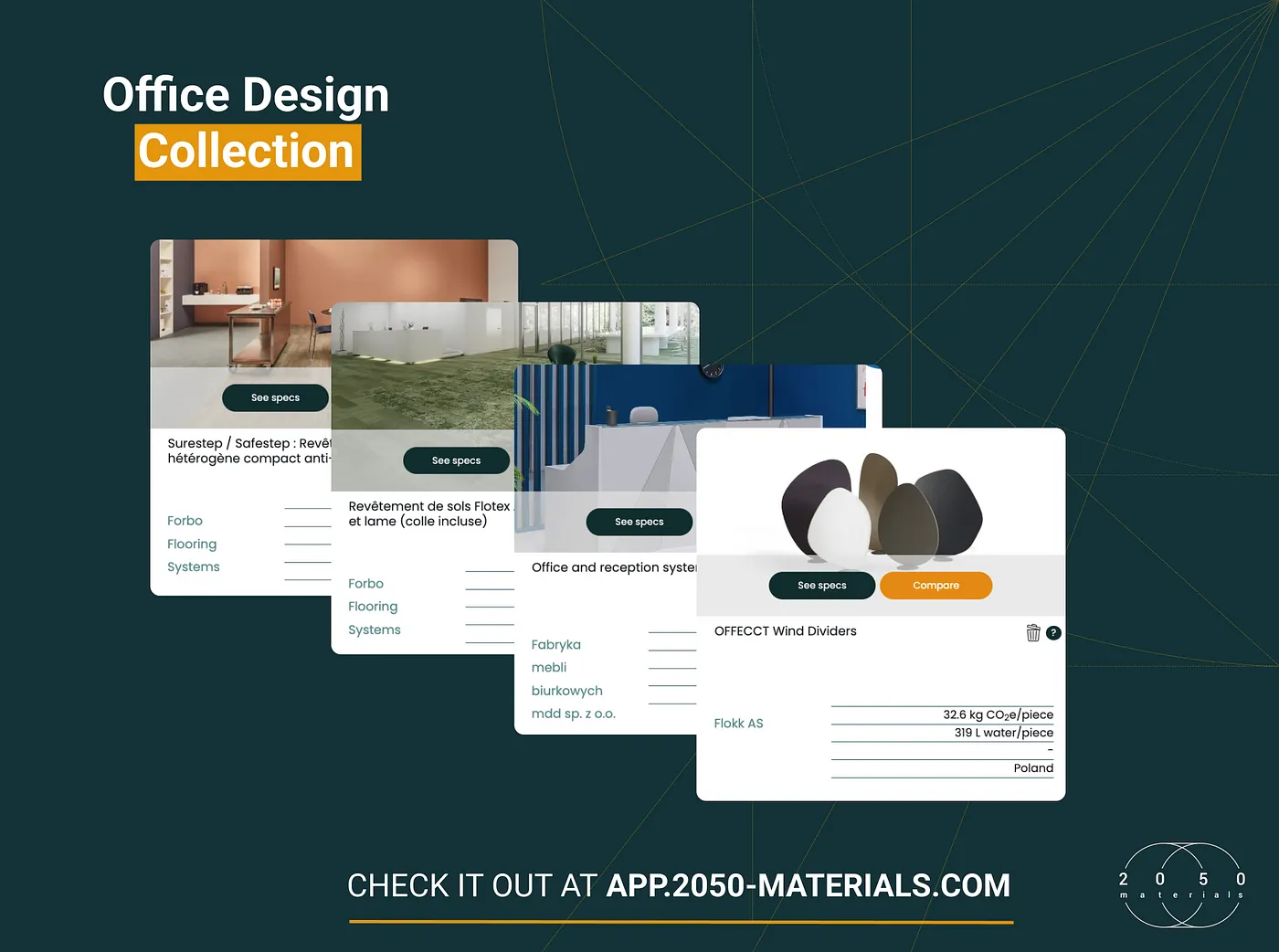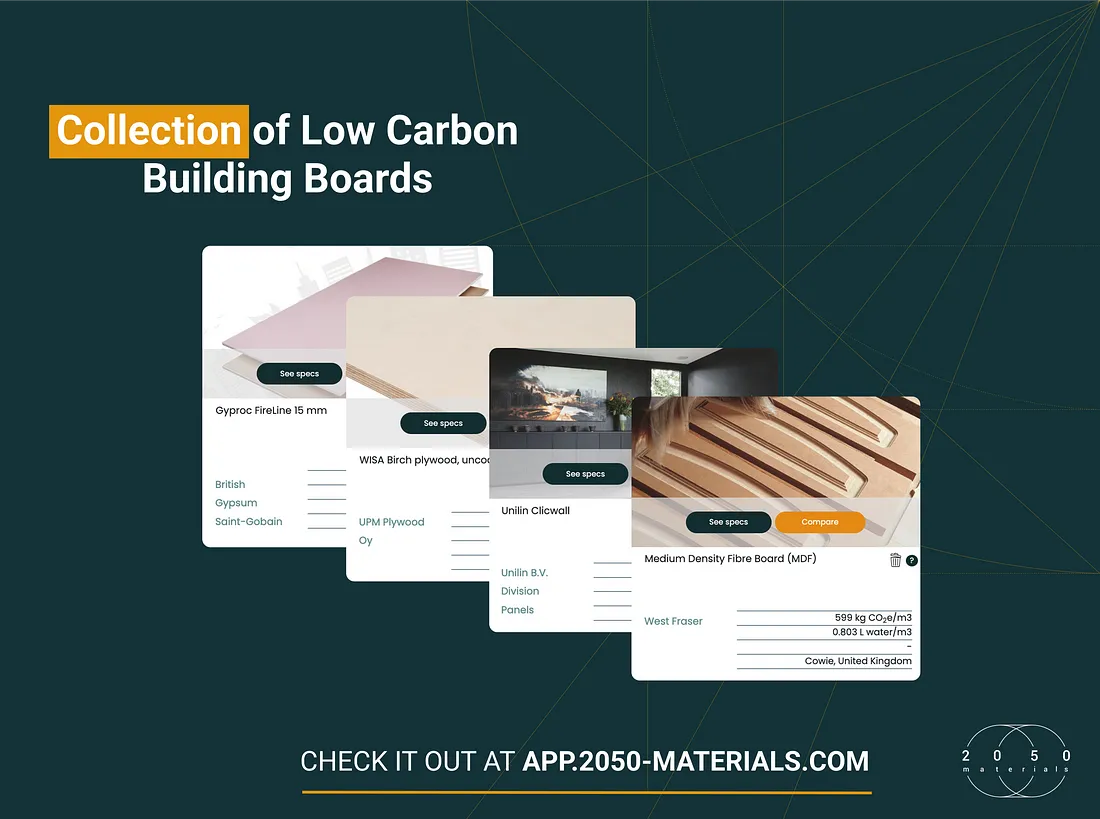Harnessing ChatGPT in AEC: Latent Space Activation through Prompting
In the fast-evolving world of Architecture, Engineering, and Construction (AEC), the adoption of cutting-edge technologies like ChatGPT can be a game-changer. ChatGPT, the popular and state-of-the-art language model developed by OpenAI, offers a plethora of applications in the AEC industry. By understanding and effectively utilizing its capabilities, professionals can revolutionize how they approach complex tasks, from conceptual design to project management.

Chat GPT prompt by 2050 Materials

Table generated by Chat GPT upon the promt provided by 2050 Materials
Brainstorming Applications in AEC
1. Design Inspiration and Conceptualization: ChatGPT can assist architects in generating creative design ideas, considering sustainability, functionality, and aesthetics.
2. Material Selection and optimization Guidance: The model can provide data-driven insights into sustainable and cost-effective building materials. Keep an eye out on for news coming soon here …
3. Regulatory and Environmental Compliance Advice: ChatGPT can help navigate complex building codes and regulations, ensuring compliance and safety.
4. Project Management Support: The tool can offer solutions for efficient project coordination, risk management, and stakeholder communication.

Enhancing Responses through Latent Space Activation and Prompting
To fully leverage ChatGPT in AEC, understanding latent space activation and effective prompting is crucial. Here’s how:
- Latent Space Activation: This involves tapping into the model’s extensive database to extract specific, relevant knowledge. For instance, asking ChatGPT to “consider its comprehensive database on eco-friendly building materials” can yield highly informed suggestions.
- Effective Prompting: Structuring prompts to guide the model through a logical reasoning process enhances the quality of responses. For example, in project management, a prompt like, “First, identify key risk factors in high-rise construction, then suggest mitigation strategies,” can produce a detailed, actionable response.


 If you are interested in a comprehensive guide with structured AEC-specific prompts which allow you to access the latent space of ChatGPT, send us an email at api@2050-materials.com
If you are interested in a comprehensive guide with structured AEC-specific prompts which allow you to access the latent space of ChatGPT, send us an email at api@2050-materials.com
Practical Prompt Techniques for AEC Professionals

Reach out if you want the full table
Evaluating Feasibility in AEC
The integration of ChatGPT in AEC is not only innovative but also practical. Its ability to process vast amounts of data and provide instant insights can save time and resources. However, it’s essential to recognize its limitations, such as the need for human oversight to interpret and apply its suggestions contextually.
Analyzing the Big Picture
Drawing from this analysis and other knowledge on prompt engineering and latent space activation in LLMs, it’s evident that ChatGPT can be a valuable asset in AEC. However, its effectiveness hinges on the ability to craft precise prompts and understand the model’s reasoning process.

Read more about this here
Conclusion
Incorporating ChatGPT into the AEC industry offers transformative potential. By mastering the art of prompt engineering and understanding the nuances of latent space activation, AEC professionals can harness this powerful tool to enhance creativity, efficiency, and decision-making. The future of AEC lies in the synergy between human expertise and artificial intelligence, and ChatGPT is at the forefront of this exciting frontier.
2050 Materials and LLM work
At 2050 Materials, we have been both experimenting and using LLMs in our work for the past year. We are now developing some outward facing tools. If you are interested in testing them out and giving us feedback, send us a message on api@2050-materials.com
Sources
- https://www.mdpi.com/2071-1050/15/18/13464
- https://www.youtube.com/watch?v=N8p6u1OtARs
Related articles

Climate-Resilient Materials for the Built Environment: A Data-Centred Prime
As climate volatility intensifies, resilience metrics are fast becoming as critical as carbon data in material selection. This article outlines why adaptation is now a design imperative, how materials can be evaluated through a systems lens, and what KPIs project teams should demand. From self-healing concrete to fire-rated façades, we present a structured taxonomy of resilient materials, explain how to embed this intelligence into digital design workflows, and propose next steps for specification, benchmarking, and procurement.
Read more
The Most Interesting Low Carbon Products in Office Design
In this article and collection, we highlight 11 outstanding products that contribute to a lower carbon footprint in office design.
Read more
Top Low Carbon Building Boards: Performance, Benefits, and Use Cases
The building boards highlighted in this article and collection showcase low-carbon innovation in modern construction.
Read more